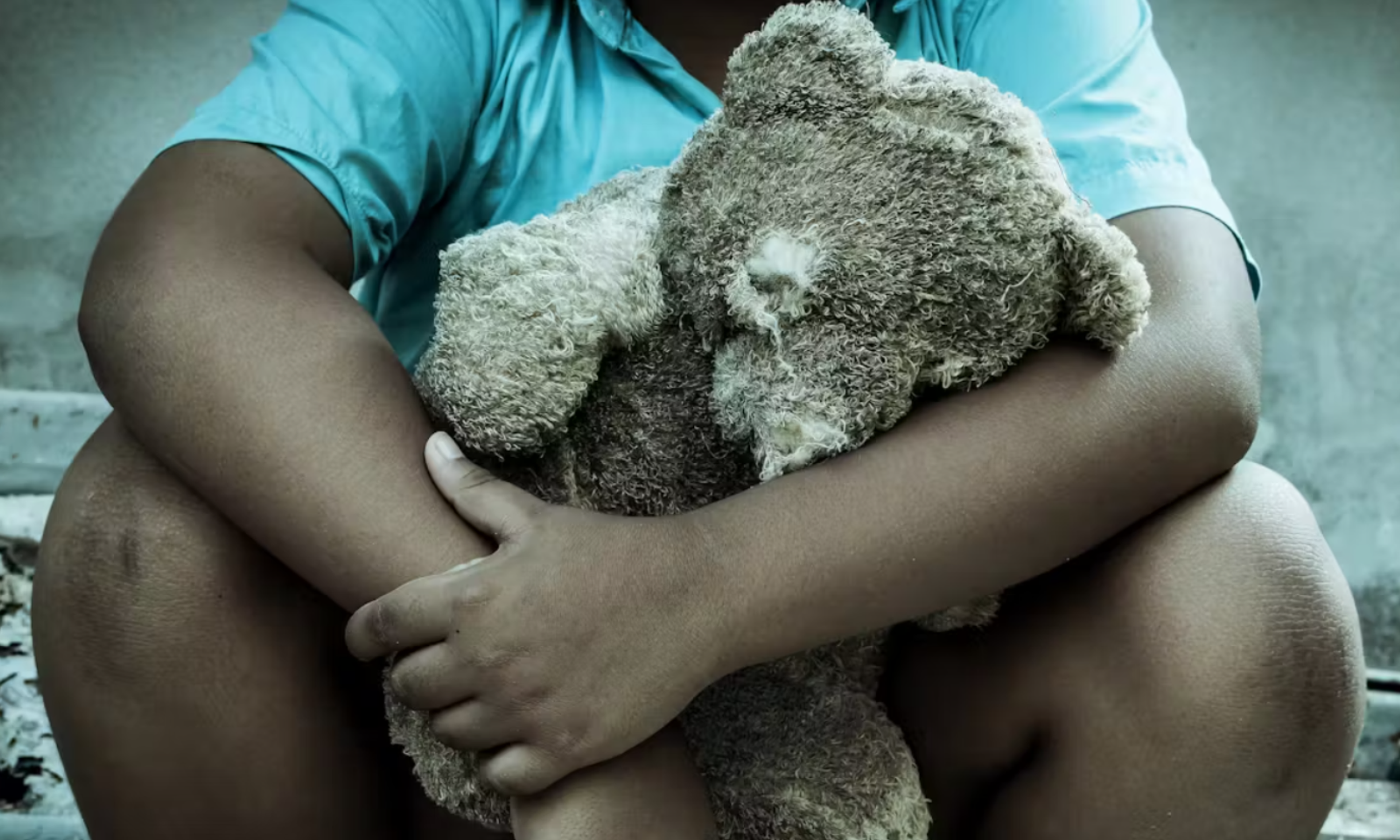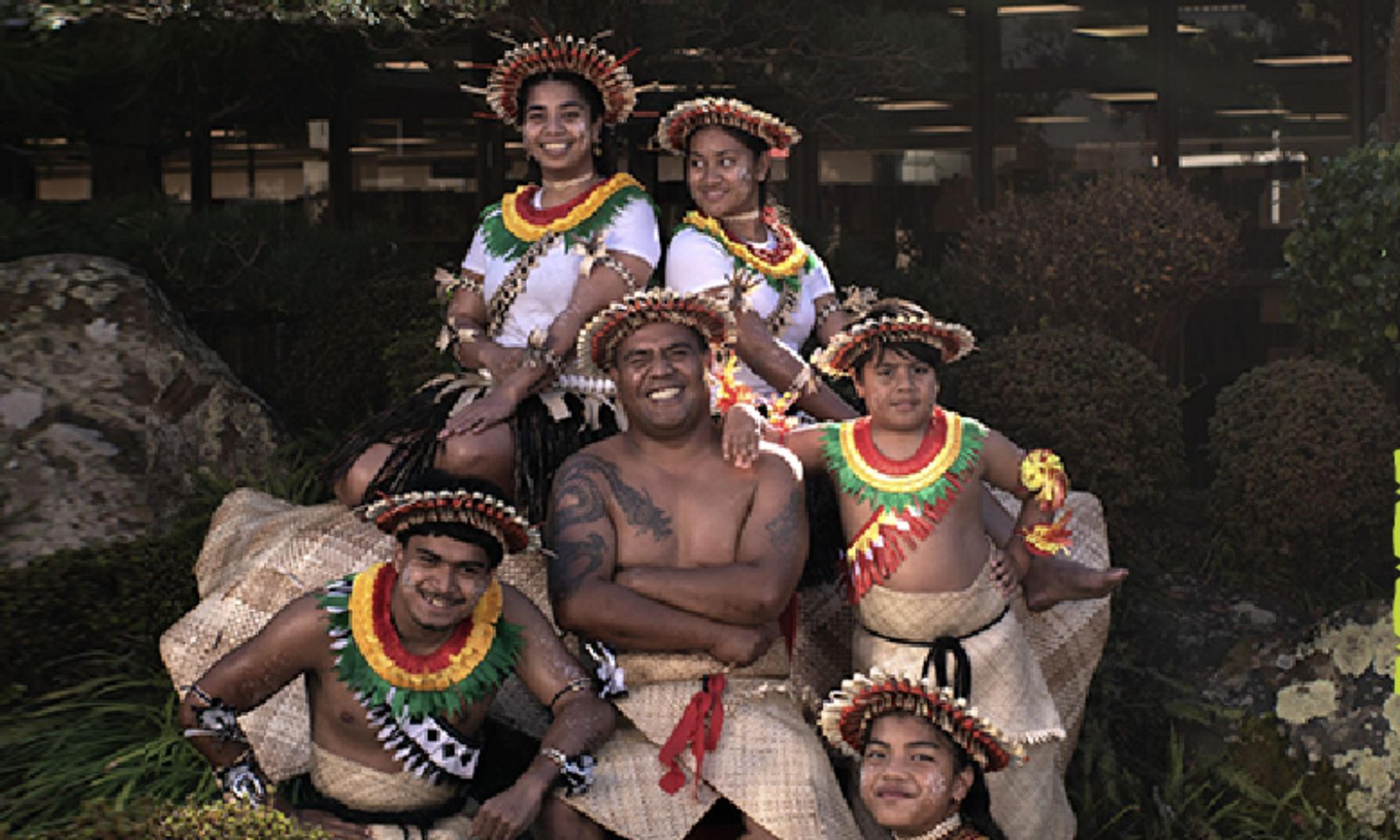

Police and Oranga Tamariki are investigating the alleged violent murder of a 10-month-old boy in Te Kūiti.
Photo/supplied
After Te Kūiti baby death, NGOs say more education is needed to address NZ's high abuse rates
The Child Abuse Prevention Foundation is calling for more care and consideration over the handling of information relating to a 10-month-old boy's alleged murder.



Teen fights for the rights of children whose parents are in prison

Aotearoa's i-Kiribati community honours language and culture

Foreign Affairs Minister rejects claim Aotearoa funding freeze to Cook Islands is ‘patronising’


New weight-loss drug poses risks of health inequities in Pacific communities - expert

Teen fights for the rights of children whose parents are in prison

Aotearoa's i-Kiribati community honours language and culture

Foreign Affairs Minister rejects claim Aotearoa funding freeze to Cook Islands is ‘patronising’
We have to be very careful about pointing out or naming things before an investigation is complete, says the chair of the Child Abuse Prevention Foundation, Theresa Christie.
Her comments come in the wake of the violent death of a 10-month-old baby in Te Kūiti near Hamilton last weekend.
Police are investigating the boy’s death where they revealed his name, including a previous non-accidental injury, and alleging inconsistencies with the statements given by those questioned.
Speaking to William Terite on 531pi's Pacific Mornings, Christie said it was important to remember "there are lives at stake here" and that the investigation should be finished before "naming things".
"Whether the things were done intentionally [or] unintentionally, there are contributing factors that need to be considered," the Māori-Sāmoan advocate said.
"A full picture should be painted before taking out pieces. There needs to be a whole picture and not people just taking out pieces and exaggerating a situation and impacting people's lives."
Watch the full interview with Christie via 531pi’s FB below:
The boy's father, at the centre of the police investigation, has reportedly denied killing his son. Police said the baby suffered "blunt force trauma" and was able to be resuscitated when he was brought to the Te Kūiti Hospital.
She said with child abuse, care, and caution were needed because once a person was labelled an abuser, they could be stigmatised by the implication that they were abusive.
“One day you might lash out because of several contributing factors. It's still not a reason to lash out at a child [but] situations impact us so that we aren’t able to cope.”
According to UNICEF, child abuse in New Zealand is among the highest in the developed world.
Oranga Tamariki reported it was likely the official records of harm did not paint the full picture but pointed towards the most common type of child abuse, neglect, which was the least publicised.
ECPACT NZ, an organisation dedicated to protecting children and young people from abuse and sexual exploitation, found that New Zealand has the fifth worst child abuse of the 31 OCED countries.
Christie said not enough was being done and that several key things were missed despite Aotearoa trying to turn around those "very poor” statistics.
She said there were two areas to work on - education for new parents and caregivers and the control current abusers had.
“So those are the tools that we need.”
Prevention is key
Christie said the foundation was focused on preventative measures such as preparing people for parenthood and caring for children rather than being "the ambulance at the bottom of the hill".
She added that this approach attempted to break the cycle of fixing parenting situations by teaching parents and caregivers coping mechanisms for when situations change.
She said this also included understanding the role of a parent or caregiver and figuring out who the direct source of support was for a child and themselves.
"A lot of people don't understand those basic things. If I had them when I was a parent first starting out my life would be so much better.
"My children's life would have been much richer. I'm not saying that they missed out on anything, but there are simple tips that as new parents they just don't know.
"It's not their fault and it's not their parents’ fault because they can't teach what they don't know."
Child, and youth sexual exploitation
ECPAT NZ's Youth Impact and Outreach officer, Chillion Sanerivi, echoed Christie's sentiments, saying a lot more work was needed to be done especially with sexual exploitation.
"It's still quite unknown in Aotearoa so there's further work to be done," Sanerivi said.
"I guess part of that is this perception that sex trafficking just happens overseas but it does happen in our backyard.
"There is a lack of information. There's a lack of awareness and there's also a lack of education."
ECPAT works alongside 125 organisations from 104 countries, and is the only group in New Zealand focused on the commercialised sexual exploitation of children and youth, Sanerivi said.
He said trafficking indicators in Aotearoa, which ECPAT taught, could be missed by front-line workers who were not educated in understanding the behaviours of vulnerable children and youth.
"That's the work that we try to focus on. To highlight and bring awareness for our practitioners, but also for our communities because we don't talk about it enough.
"And because we don't talk about it enough it puts us in a very vulnerable position."
Watch the full interview with Sanerivi via 531pi’s FB below:
ECPAT started a campaign, Action Station, to get a dedicated national trafficking and exploitation helpline, which Sanerivi said would help report exploitation and safeguard vulnerable people.
Sanerivi adds it is also an opportunity to educate the public but that "it's really about navigating the immediate support so that the individual can get immediate support".
"But also get a greater understanding of the issue and information for better intervention and prevention strategies.
"With the helpline, we'd have dedicated and highly trained staff so there is a space for an individual that's probably in those vulnerable situations to contact someone.
"There is this understanding and confusion of not knowing what exploitation is versus other forms of abuse and so that helpline will help the individual."
Media overrepresentation of child abuse
Christie said Pacific and Māori child abuse was at the higher end of the statistics but "we seem to be under the microscope more than any other nationality".
A 2019 study of more than 55,000 New Zealand children born in 1998, found that Pacific children had 27 per cent abuse notifications, 11 per cent substantiations and 7.1 home care placements relative to other ethnic groups excluding Māori, who had 42 per cent notifications, 20.4 per cent substantions and 7.1 per cent placements.
A 2010 study by Massey University analysed child abuse statistics and media coverage surrounding it between 2000 and 2007. It found a 1-1.1 ratio between Pākehā and Māori in the statistical data, yet Māori were 42 per cent overreported in media for child abuse.
"We always tend to get labelled with that and there's no doubt that we are highest in the stats.
"I think it's because of that microscope that we are higher but abuse happens in every family, every day, reported and unreported.
"There's no gender to it, whether you're rich or poor, there's no culture to it, it just happens," the study revealed.
To view ECPAT and Action Station's campaign, click here.